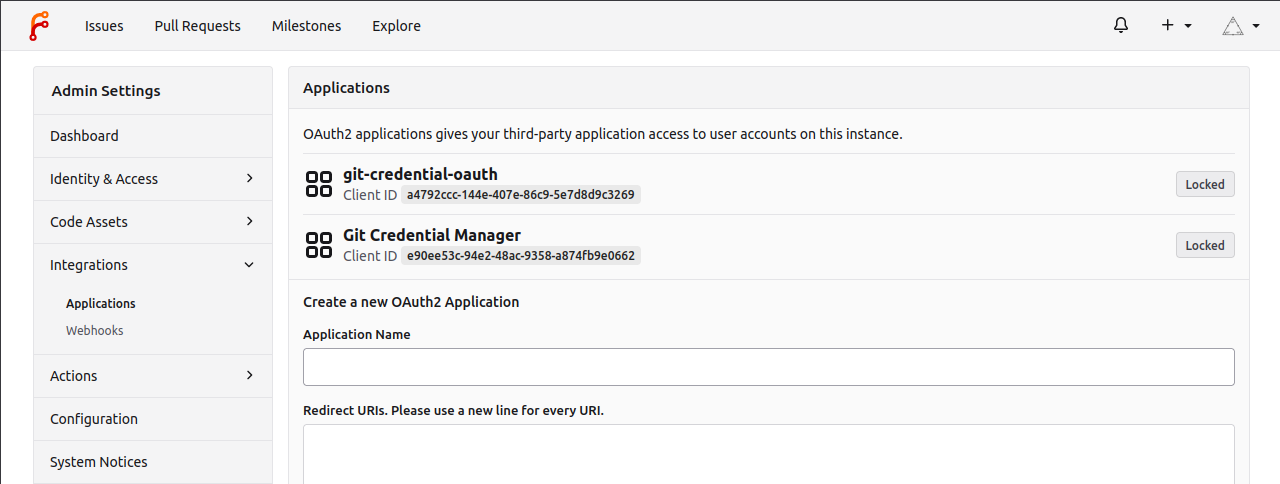mirror of
https://codeberg.org/forgejo/docs.git
synced 2024-11-24 18:09:26 -05:00
Per "request" of @0ko in https://codeberg.org/forgejo/forgejo/pulls/3270#issuecomment-1774032
TODOs
- postponed: how to add codespell (written in Python) to CI -- separate workflow? add to some other step? to some other tool/specification?
Reviewed-on: https://codeberg.org/forgejo/docs/pulls/536
Reviewed-by: Earl Warren <earl-warren@noreply.codeberg.org>
Co-authored-by: Yaroslav Halchenko <debian@onerussian.com>
Co-committed-by: Yaroslav Halchenko <debian@onerussian.com>
(cherry picked from commit 9ad5f2ab0f)
1.4 KiB
1.4 KiB
| title | license |
|---|---|
| OAuth2 provider | CC-BY-SA-4.0 |
Forgejo can act as an instance wide OAuth2 provider. To achieve that, OAuth2 applications must be created in the /admin/applications page.
NOTE: Third party applications obtaining a token for a user via such an application will have administrative rights. OAuth2 scopes are not yet implemented.
Pre-registered applications
The following OAuth2 applications are pre-registered because it is generally useful for Forgejo to be an OAuth2 provider for the corresponding third party software. Their usage is explained in the Forgejo user guide.
- git-credential-manager is the name of the OAuth2 application for the Git Credential Manager (a Git credential helper)
- git-credential-oauth is the name of the OAuth2 application for the git-credential-oauth (a Git credential helper)
All pre-registered applications are activated by default in the [oauth2].DEFAULT_APPLICATIONS setting as displayed in the /admin/applications page.
